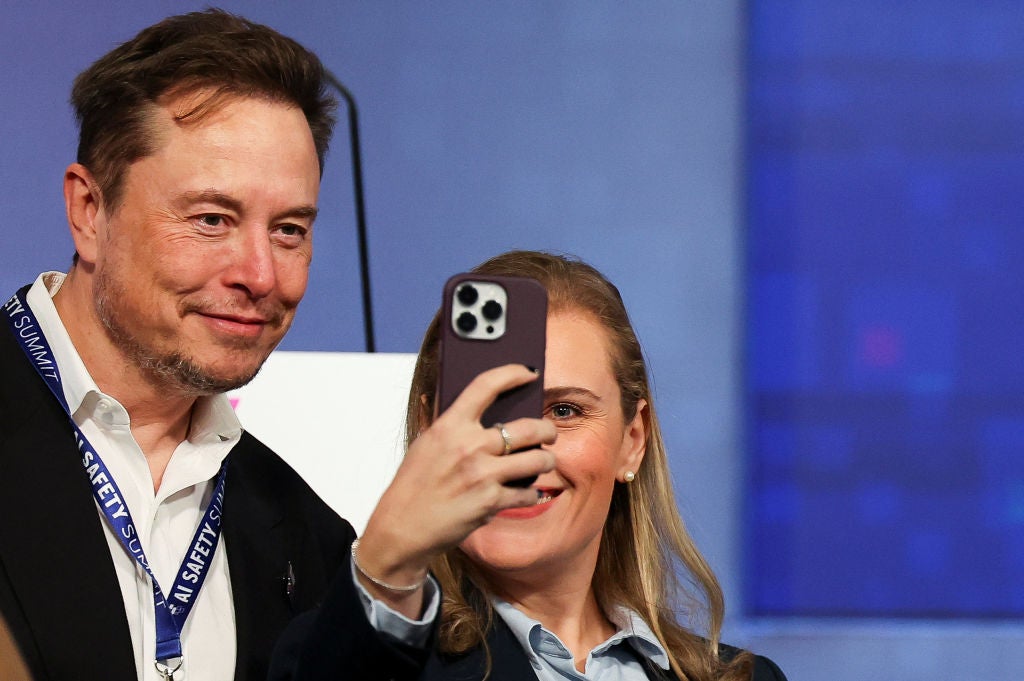
Small and medium-sized businesses have called for more representation following the opening statements of the UK’s AI Safety Summit (1 November) in Bletchley Park.
Technology Secretary Michelle Donelan opened the proceedings, with an overarching focus on the threat of large-scale “Frontier AI” systems and Big Tech.
Donelan spoke of the powerful AI advancements that had been made in a short space of time, spurred on by the release of OpenAI’s ChatGPT.

Access deeper industry intelligence
Experience unmatched clarity with a single platform that combines unique data, AI, and human expertise.
AI had the power to “free people everywhere from tedious work and amplify our creative abilities,” she said.
At the same time, the minister warned of the overarching dangers of the technology – something that will be discussed throughout the Summit.
She told delegates that AI “could also further concentrate unaccountable power in the hands of the few or be maliciously used to undermine public trust”.
Donelan touched on the power of Frontier AI, something the UK government has deemed as big-scale AI, bigger than the current ChatGPTs and Google Bards of the industry.

US Tariffs are shifting - will you react or anticipate?
Don’t let policy changes catch you off guard. Stay proactive with real-time data and expert analysis.
By GlobalDataRepublic of Korea and France will be next to host AI Safety Summit, Donelan revealed. The Republic of Korea will host six months time and then France in one year’s time.
Criticism of the Summit has been rife
The summit’s two day agenda focus had been a target of criticism for some businesses who feel that the government could be focusing on more pressing issues.
Many businesses have claimed that the focus should be on helping businesses to integrate emerging AI systems during a time of regulatory uncertainty.
Lewis Liu, CEO of Eigen Technologies told Verdict that the AI Summit is unlikely to help businesses integrate AI quicker.
Liu claims that many businesses are constrained to concerns relating to privacy, intellucatual propert and liability.
“The Summit may fail to address those issues meaningfully, as its agenda appears to be being driven by the priorities of the Big Tech companies and their exaggerated doomsday scenarios about the risks of general artificial intelligence,” he said.
Diana Kennedy, CTO at health insurance giant Bupa, told Verdict: “We expect the summit to move the needle on AI, not just from a safety perspective, but cementing it’s potential to solving the biggest questions of today and tomorrow.
“As collaboration is needed to enforce global standards on the issues surrounding it, it is important that there are multiple ‘world leaders’ in the field, beyond the UK”
Kennedy claimed that AI is “shaping the future of medical research, drug discovery, and personalised medicine”.
“However, in order to reach its true potential, the world will need to come together and create a responsible framework for AI, which will continue to adapt as technology, the market and regulations develop. That’s what I hope we’ll get from the summit.”
China says ‘international laws’ must remain respected by AI
Wu Zhaohui, China’s delegate to the AI Safety Summit, urged countries to “ensure AI always remains under human control”, during the opening remarks at the AI Safety Summit.
Mr Wu said AI should be required to respect “rights and interests of humanity” and “international laws”. It comes amid controversy over the decision to invite China to the landmark event. ,
He added governments and countries should work to “build trustworthy AI technologies that can be monitored and traced”.
The European Commission Vice President called for “smart regulation” on AI and claimed it was a false debate on focusing on the risks today as opposed to those in the future.
The EU VP heralded the EU’s AI Act as “innovation friendly”, claiming the industry needs to combine “smart regulation with voluntary commitments”.







